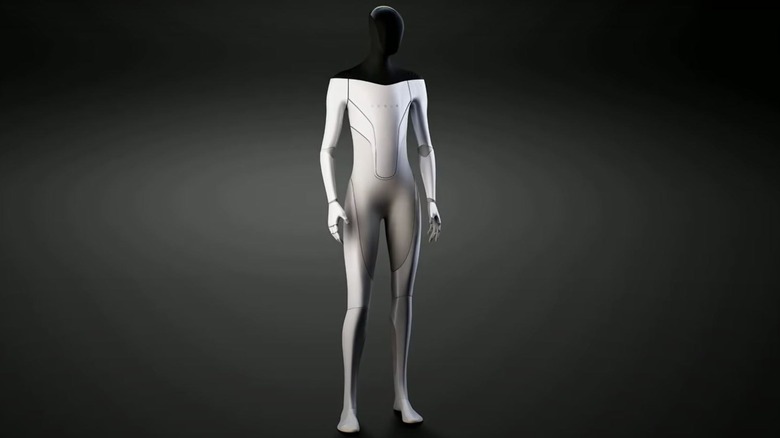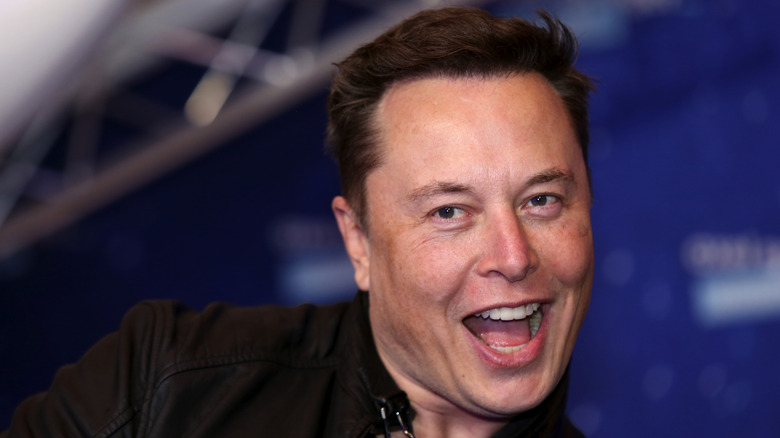The Truth Behind Elon Musk's Humanoid Robot Plan
In case you thought you didn't have to add "how to placate your new robot overlord" to your list of future worries, well, sorry. Who else but madcap capitalist and Tesla "Technoking" (his real, self-appointed legal title, per Voi) could help bring us a timeline so unwittingly odd and dystopian? Yes folks, it's time to add humanoid robots to Elon Musk's repertoire of logorrheic tweets (on ScoopWhoop), suicidal self-driving cars (per EuroNews), and wish to become "Imperator of Mars" (per Futurism).
Musk's humanoid robot, not-at-all grandiosely named "Optimus" (like the Transformer), was announced last August, 2021, as New Scientist overviews. Granted, it's not quite Terminator-level lethal, but hey, you have to start somewhere. Designed by Tesla using the same artificial intelligence (AI) used for their self-driving cars, Optimus is supposed to "eliminate dangerous, repetitive, boring tasks" and respond to voice commands from owners. The robots are small, only about 57 kilograms (125 pounds) and 173 centimeters tall (5 foot, 6 inches). And bonus: They can only carry about 20 kilograms (44 pounds), meaning you can overpower them when they revolt. Also, their face is a screen.
Musk states that a prototype will be ready sometime 2022, prompting many to ask, "Will they also need to pee in bottles while making Amazon deliveries?" Let's hope Musk is keeping Asimov's three laws of robotics in mind, which include obeying orders and not hurting humans (Scientific American has a full list). As a first command we recommend, "Drop the machete."
We can, but should we?
Engadget cites a simple reason for Elon Musk's humanoid robot plan: It's a publicity stunt. It's not about driving Musk's rather ambitious, as-yet-unrealized plans for the future, but about driving up Tesla's $1 trillion overall value, which the company hit back in October, 2021, per CNN. The other companies in the U.S.' trillionaire club? You can probably guess them, if not their order: Apple, Microsoft, Alphabet (Google's parent company), and Amazon, top to bottom. Tesla, though, hit one trillion the fastest, in only 12 years. And admittedly, a lot of that is due to Musk's public bluster and off-kilter bravado.
The Conversation raises a major concern related to such unbridled money and star power. First off, all of Musk's various projects rely on similar pieces of interconnected tech that amount to a potent "toolbox" of "sensors, actuators, energy and data infrastructures, systems integration and substantial advances in computer power." In other words, we're face-to-face with the classic "we can, but should we?" dilemma, especially when taken in tandem with Musk's impetuousness. There's lots of tools, but are they in the hands of the right people? And what risks are there, not only benefits? On this point Musk himself has stated more than once that "AI is more dangerous than nukes," as CNBC quotes. And yet, the Optimus project marches on.
For the present, though, we can watch a cringey dancing dude in an Optimus spandex suit on Tesla AI Day, as CNET shows us on YouTube.

